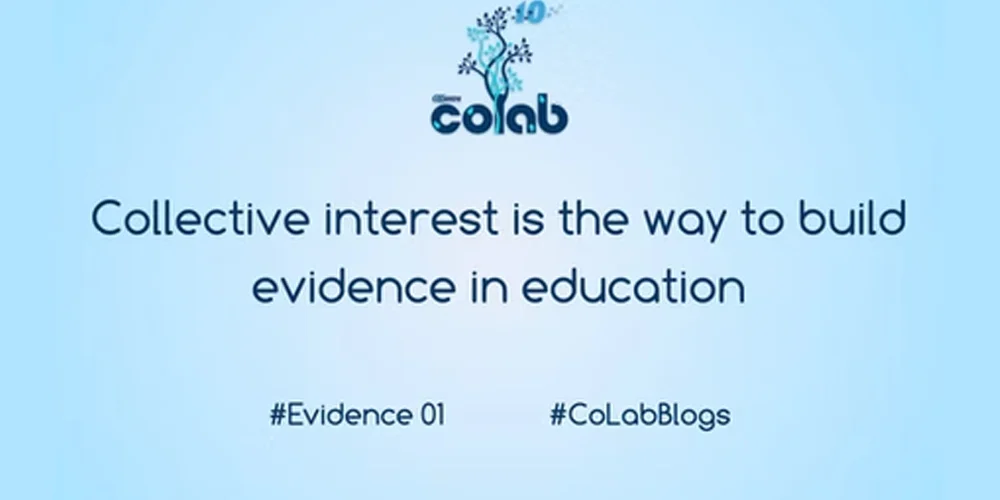CoLab dreams of ‘a global community for education equity’. Because we believe that it is where everything starts. A shared vision with different approaches to achieve it will help bring in constructive changes that are scalable and sustainable.
In this blog, I would like to take you through the implications and actions of evidence-informed practice in the classroom:
A shared purpose on what really matters the most Evidence gives us a chance to have a shared focus on what matters in ‘education’. The shared purpose is dynamic, contextual and emerges from a robust understanding of the need.
Commitment to mutual benefit Evidence by its nature creates mutual benefit because it helps create transparent information that we all have access to what works in education. But that requires, breadth, depth and pace of evidence generation which has to be made sure to have people believe that it creates mutual benefit to teachers or communities.
Free access to high standards of evidence Only when evidence is freely available to people without any paywalls, it will reach to the classroom. And, by high quality evidence web can that evidence which can be replication where one can get their hands on the numbers. So it needs to be accurate, actionable, accessible, appropriate.
Belief in empowered practitioners Evidence to be put in the hand of those who make decisions about teaching and leaning for the children in front of them.
Need to build a local expertise and capacity There is a need to build capacity at the local system level to use evidence.
Benefits of Evidence-informed practice
Collaboration and transparency rather than competition and black boxes (no access to what is happening in classrooms).
At national level there is trust and a collective attention on what matters rather than fragmented and mis-alinged efforts.
System itself at a local level will build meaningful partnerships which will help focussing on adaptation and implementation. Not re-inventing the wheel but looking at how to bring something to life in our community.
At school level, its will be an ongoing professional enquiry in what works in each school which opens up curiosity and joy again in being a teacher.
In classrooms there will be focus on defined areas of practice, and balance it with locally defined approaches that work for our children.
Why are schools with similar resources, communities have different level of learning outcomes compared to the other schools? There is a need for evidence to get under the skin with reliable ways of really understanding what’s going on in the schools that are effective. Evidence opens that up, in a way that is accessible, for teachers, school leaders to make decisions for what really works well in their context.
There is a need to for evidence-‘informed’ and not evidence-based practices. Stay tuned to know more about it in our next blog.
Adapted from talk by Sir Kevin Collins, Chief Executive, Education Endowment Foundation (EEF)
 Contact Us
Contact Us
